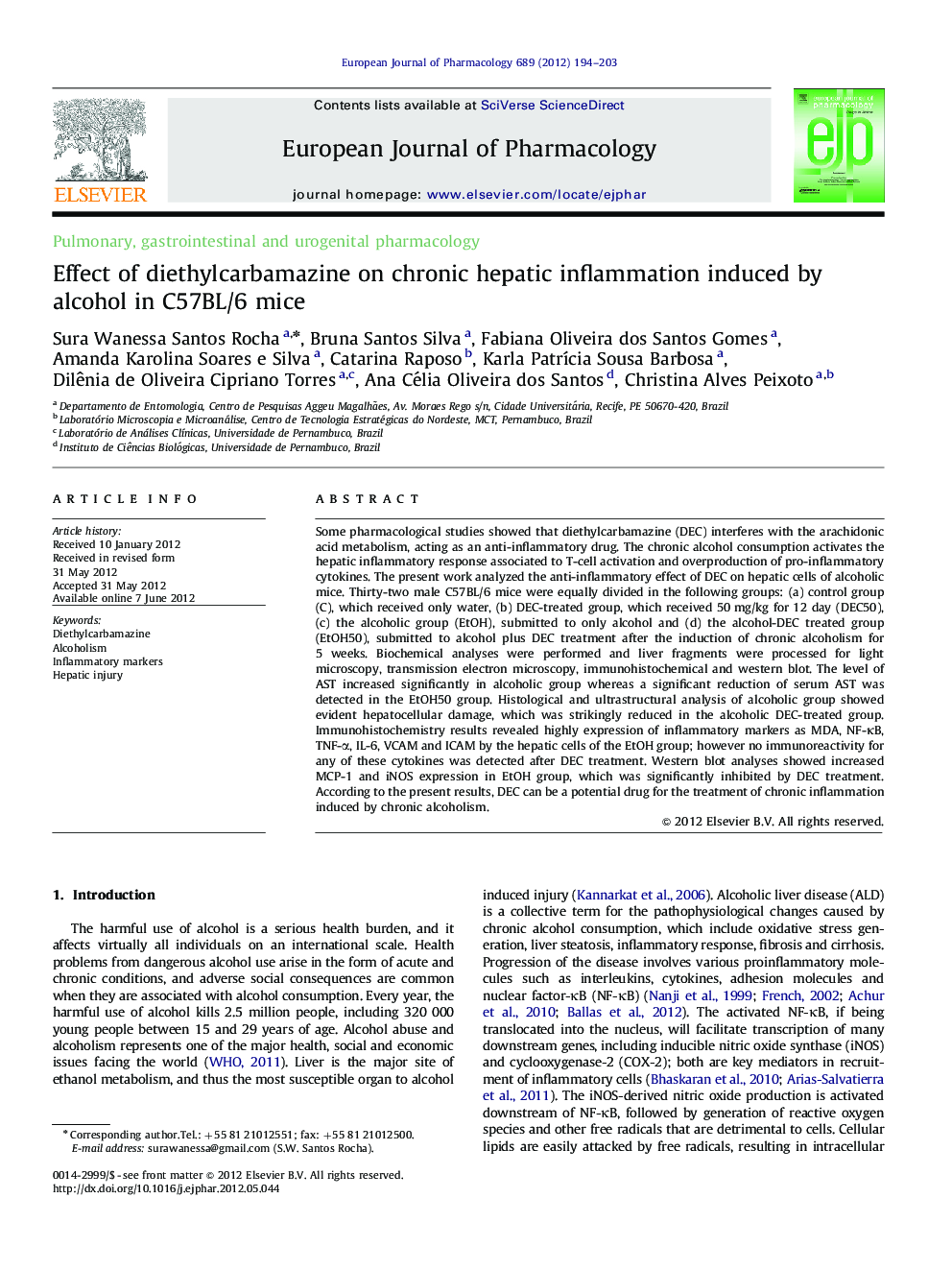| Article ID | Journal | Published Year | Pages | File Type |
|---|---|---|---|---|
| 5829430 | European Journal of Pharmacology | 2012 | 10 Pages |
Abstract
Some pharmacological studies showed that diethylcarbamazine (DEC) interferes with the arachidonic acid metabolism, acting as an anti-inflammatory drug. The chronic alcohol consumption activates the hepatic inflammatory response associated to T-cell activation and overproduction of pro-inflammatory cytokines. The present work analyzed the anti-inflammatory effect of DEC on hepatic cells of alcoholic mice. Thirty-two male C57BL/6 mice were equally divided in the following groups: (a) control group (C), which received only water, (b) DEC-treated group, which received 50 mg/kg for 12 day (DEC50), (c) the alcoholic group (EtOH), submitted to only alcohol and (d) the alcohol-DEC treated group (EtOH50), submitted to alcohol plus DEC treatment after the induction of chronic alcoholism for 5 weeks. Biochemical analyses were performed and liver fragments were processed for light microscopy, transmission electron microscopy, immunohistochemical and western blot. The level of AST increased significantly in alcoholic group whereas a significant reduction of serum AST was detected in the EtOH50 group. Histological and ultrastructural analysis of alcoholic group showed evident hepatocellular damage, which was strikingly reduced in the alcoholic DEC-treated group. Immunohistochemistry results revealed highly expression of inflammatory markers as MDA, NF-κB, TNF-α, IL-6, VCAM and ICAM by the hepatic cells of the EtOH group; however no immunoreactivity for any of these cytokines was detected after DEC treatment. Western blot analyses showed increased MCP-1 and iNOS expression in EtOH group, which was significantly inhibited by DEC treatment. According to the present results, DEC can be a potential drug for the treatment of chronic inflammation induced by chronic alcoholism.
Related Topics
Life Sciences
Neuroscience
Cellular and Molecular Neuroscience
Authors
Sura Wanessa Santos Rocha, Bruna Santos Silva, Fabiana Oliveira dos Santos Gomes, Amanda Karolina Soares e Silva, Catarina Raposo, Karla PatrÃcia Sousa Barbosa, Dilênia de Oliveira Cipriano Torres, Ana Célia Oliveira dos Santos,
